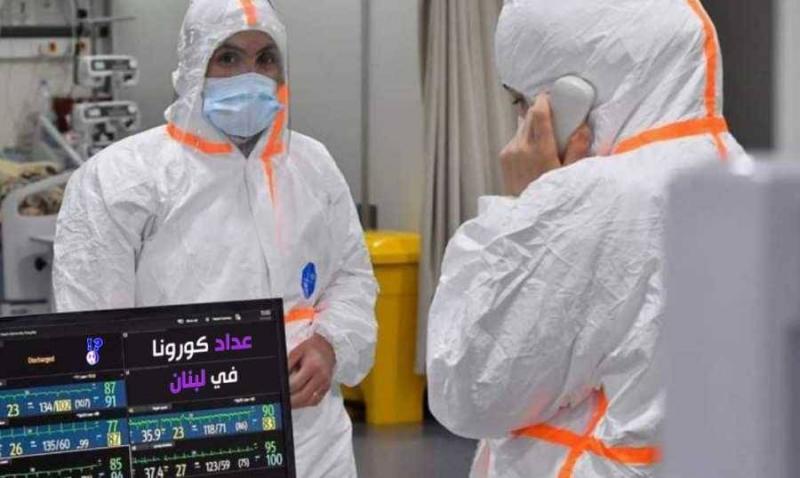Today, the positivity rate for coronavirus tests stands at 15%. The situation is no longer under control with the reported infections surpassing one thousand daily. Compounding the dire epidemiological realities is the increased burden on the already strained healthcare sector and the decline in vaccination efforts, which continue to focus primarily on the elderly and those with chronic illnesses.
Two days ago, the confrontation with the coronavirus escalated into a dangerous phase, with infection rates crossing the one-thousand mark for the first time in nearly half a year. Without warning, the Corona tally has resumed activity, recording 6,240 confirmed infections in the past seven days, including 1,377 yesterday. Concurrently, the positivity rate for tests has risen to nearly 15%, indicating that the situation is no longer under control, at least regarding the imminent spread of the virus in the country.
Alongside these figures, another concerning metric is the number of individuals requiring hospitalization, which poses an additional burden on an already overtaxed healthcare system. According to the latest statistics, bed occupancy in the sections designated for COVID patients stands at 13% (59 cases) of the total beds available, with 10% (20 cases) in intensive care units.
This is occurring while the vaccination process continues to see a lackluster response, prompting the Ministry of Public Health to mobilize based on recommendations from the National COVID Vaccine Management Committee to revitalize efforts. The coverage remains modest, with only about 45% of the population having received the first and second doses and 25% having received the third dose.
Today, a greater challenge lies in the country's ability to cope, especially against the backdrop of the ongoing economic and financial crisis that has led to significant changes in the healthcare sector for the worse. This affects employee commitment at vaccination centers, public eagerness for vaccinations, and the healthcare sector's capacity to fulfill its duties as it did previously. The public health minister, Firas Abyad, reassures that there remains some capacity to withstand the crisis, but this may not last long with nearly daily increases in hospital admissions, noting that "most hospitals have closed the sections designated for COVID patients," as stated by the head of private hospital owners, Suleiman Haroun. Therefore, should the number of those needing hospitalization rise, it may be "almost impossible to return to the readiness that accompanied the last wave.”
The reasons for this incapacity include three main issues: “the human resources that are no longer adequate, the difficulty in procuring medicines, and securing liquidity.” While the rooms are still equipped with equipment, calling on hospitals to reopen their sections has become closer to fantasy than reality. Nonetheless, Haroun states, “We will ask hospitals to remain on standby in case we enter a phase of widespread transmission.”
On the other side of the confrontation, the vaccination process remains timid. According to the head of the COVID Vaccine Executive Committee, Dr. Eid Azar, "the problem today lies in the reluctance to vaccinate," indicating a decline in interest in receiving the vaccine, particularly among the more mobile and younger demographics, highlighting that "almost no enthusiasm existed" even during the height of the vaccination process. In this context, sources within the Ministry of Health point to 200,000 vaccine doses for young children aged 5 to 12 stored in refrigerators "because they aren’t being utilized." These doses have an extended expiration date of two months from now.
The current ambition is to "reach 100,000 monthly," says Azar, cautiously optimistic about a "noticeable increase in requests in recent days." However, he prefers to wait to see what the next two weeks will bring before deciding on the next steps.
Another discussion arising from the resurgence of COVID-19 concerns the priorities of the Ministry of Public Health. In light of the ongoing crisis affecting the ministry, which is "cut off from everything," discussions are leaning toward further borrowing from the World Bank to secure vaccines, especially since "donations today seem to have found another destination, such as Ukraine, for example." The recurring question here is: who determines the priorities at the moment? This is coupled with another question: "Do we really need another quantity of vaccines before utilizing what we have in storage? And will there really be a burden on the ministry regarding hospital admissions?"
The reason behind these questions is that there is an estimated stock of vaccines "amounting to 300,000 doses for adults and 200,000 doses for children aged 5 to 12 still in their original state." This stock is subject to a limited expiration period with an extension of only two months. Additionally, there are other quantities "stored for private sectors such as universities" that are also held by the ministry. There are indications of larger quantities of vaccines available, as mentioned earlier by the head of the National COVID Vaccine Management Committee, Abdurrahman Al-Bizri, who previously stated that there are about 900,000 doses ready for those wishing to receive the third and fourth doses.
Amidst all this discussion, the process of returning expired vaccines is ongoing, as "we are still receiving vaccines marked for destruction, because 31 days have passed since their removal from storage, and the centers that received them have not been able to utilize them entirely." In this context, sources talk about "13,500 bottles of vaccines, meaning approximately 81,000 doses are set to expire, aside from those already within the private sector." This figure adds to "thousands of doses of the Moderna vaccine that were almost entirely destroyed, with 39,300 doses out of 40,000 received as donations being wasted, in addition to the complete destruction of all Johnson & Johnson doses!"




